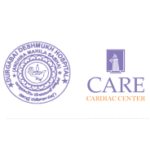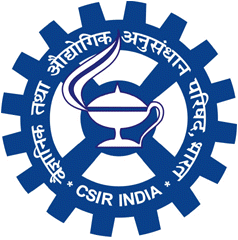Treatments Focus
Cholesterol Metabolism

Cholesterol is a waxy, fat-like substance made in the liver and found in all the cells of the body. Cholesterol is very essential to the body and for maintenance of good health. It helps your body to make cell walls, tissues, hormones, vitamin D and bile acid. The cholesterol in your blood comes from two sources: the foods you eat and by your liver.
Cholesterol metabolism.
Metabolism can be defined as the chemical reactions that take place within each cell of a living organism which produce the energy needed to carry out vital functions such as moving, growing, etc.
Cholesterol metabolism is metabolized majorly in the liver and intestine in humans, although a small amount of cholesterol is lost through the skin during shedding of dead skin cells which is replaced with new cells. Your body needs adequate amount of cholesterol to be healthy.
Types of cholesterol
There are two main types of cholesterol:
- low-density lipoprotein (LDL), or “bad” cholesterol
- high-density lipoprotein (HDL), or “good” cholesterol
High levels of HDL are desirable and are associated with good metabolic health, whereas high levels of LDL may increase risk of metabolic disorders.
Symptoms of cholesterol problems
High level of LDL in blood can increase the risk for other conditions such as:
High blood pressure
Angina (chest pain)
Stroke
High cholesterol levels are common in people who are obese or have diabetes.
Diagnosis
A cholesterol test is a blood test that measures the amount of each type of cholesterol and certain fats in your blood.
- If you are 20 years or older, you should get checked every 4 to 6 years.
- If you are obese, or diabetic or have any heart conditions – you will be asked for regular check-ups.
Treatment
Lifestyle changes are the first choice of treatment for patients with disorders of cholesterol metabolism. Statins can also be used to bring down the levels of cholesterol.
The common measures to reduce cholesterol levels include:
- Daily exercise
- Quitting smoking
- Alcohol restriction
- Maintaining a healthy weight
- Treating underlying conditions
- Using medicines, if prescribed
FAQ's :
There is evidence that states that certain genetic mutations are involved in disorders related to cholesterol uptake, mobilization and cholesterol synthesis.
Yes, there are genetic testing available that evaluate the presence of familial hypercholesterolemia.
Familial hypercholesterolemia is a gene alteration that is passed down from one or both parents (inherited), that causes high LDL cholesterol. This condition begins at birth and causes heart attacks at an early age. It is also called as familial hyperlipidaemia.
Anyone can develop high cholesterol as they age, but FH is an inherited genetic disorder.
Familial hypertriglyceridemia causes higher levels of triglycerides (a type of fat) in a person’s blood. It runs in families. Primary treatment includes lifestyle adjustments, diet modifications and drug therapy.
References:
- Cholesterol level: Can it be too low? Mayo Clinic. https://www.mayoclinic.org/diseases-conditions/high-blood-cholesterol/expert-answers/cholesterol-level/faq-20057952 Accessed on 19-05-2022
- High cholesterol. Mayo Clinic. https://www.mayoclinic.org/diseases-conditions/high-blood-cholesterol/symptoms-causes/syc-20350800 Accessed on 19-05-2022
- Top 5 lifestyle changes to improve your cholesterol. Mayo Clinic. https://www.mayoclinic.org/diseases-conditions/high-blood-cholesterol/in-depth/reduce-cholesterol/art-20045935 Accessed on 19-05-2022
- Cholesterol Metabolism. UTMB Health – University of Texas Medical Branch. https://www.utmb.edu/pedi_ed/Obesity/page_19.htm Accessed on 19-05-2022
Related Articles
Book an Appointment to understand how GenepoweRx can help you in treating
Cholesterol Metabolism
Meet The Doctors
Dr Kalyan Uppaluri
Dr Hima Challa
Your genetics … Your Test ... Your Health Success
It’s always the word of mouth that’s the best advice. Here are some of our…


Our Partners






Professional Partnerships
Government Association

